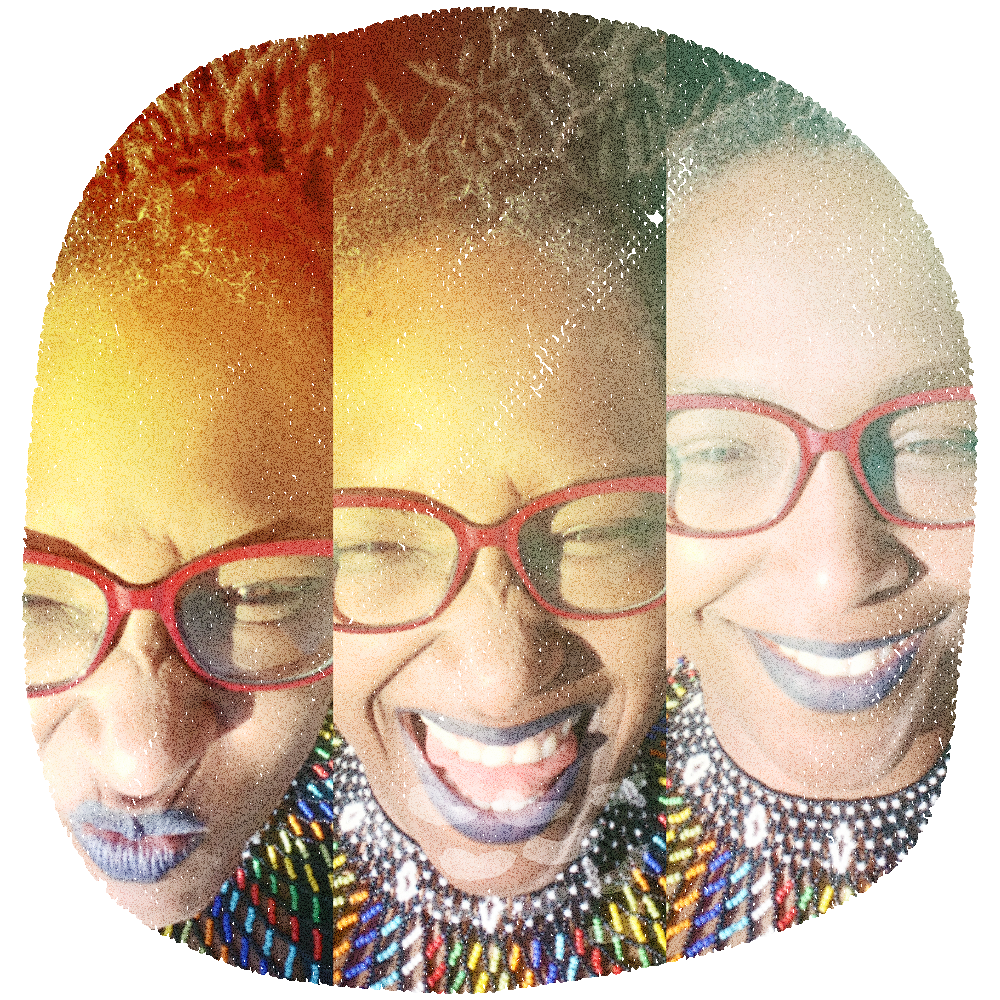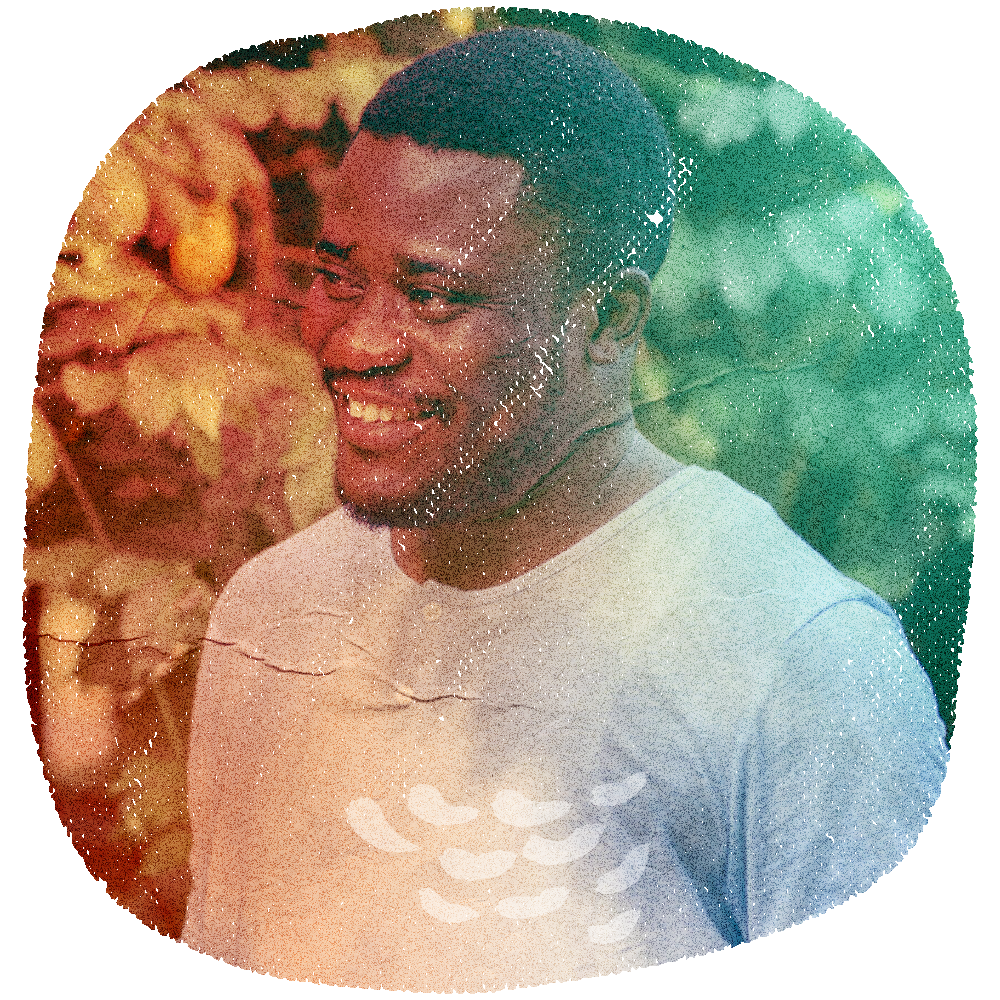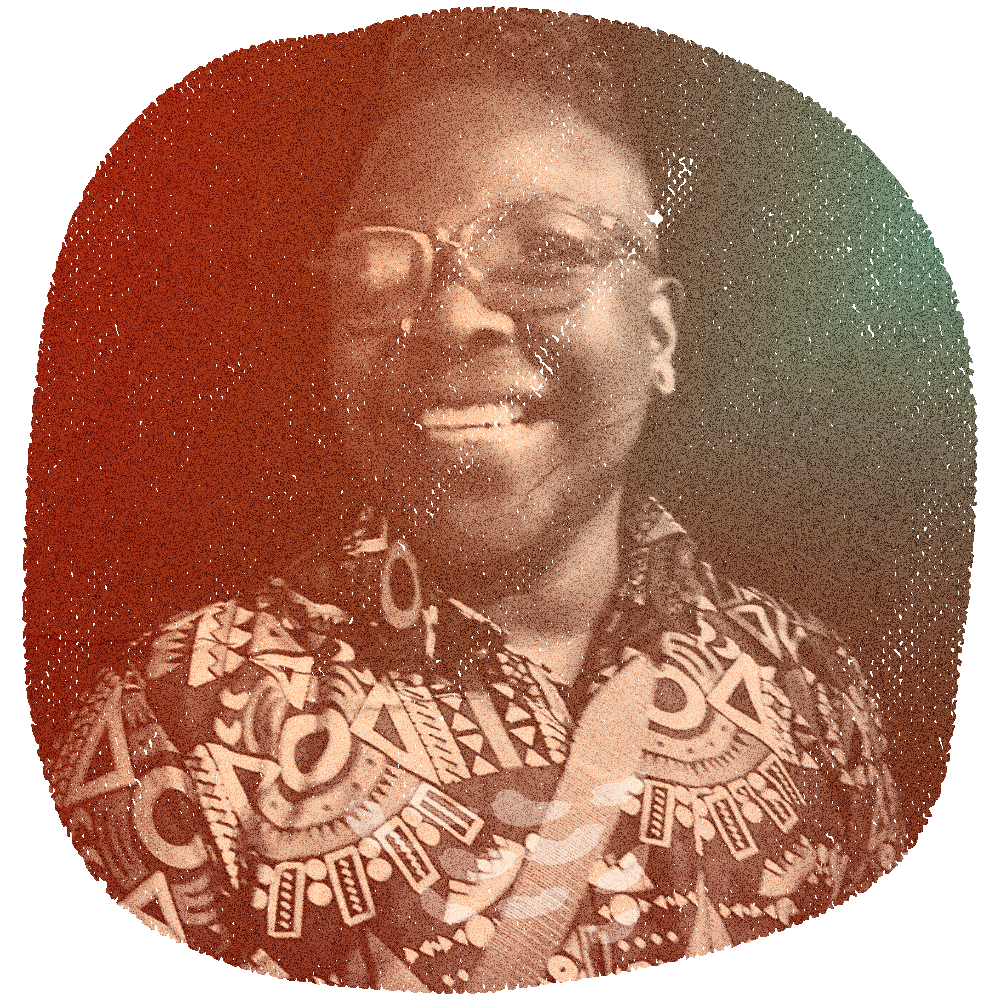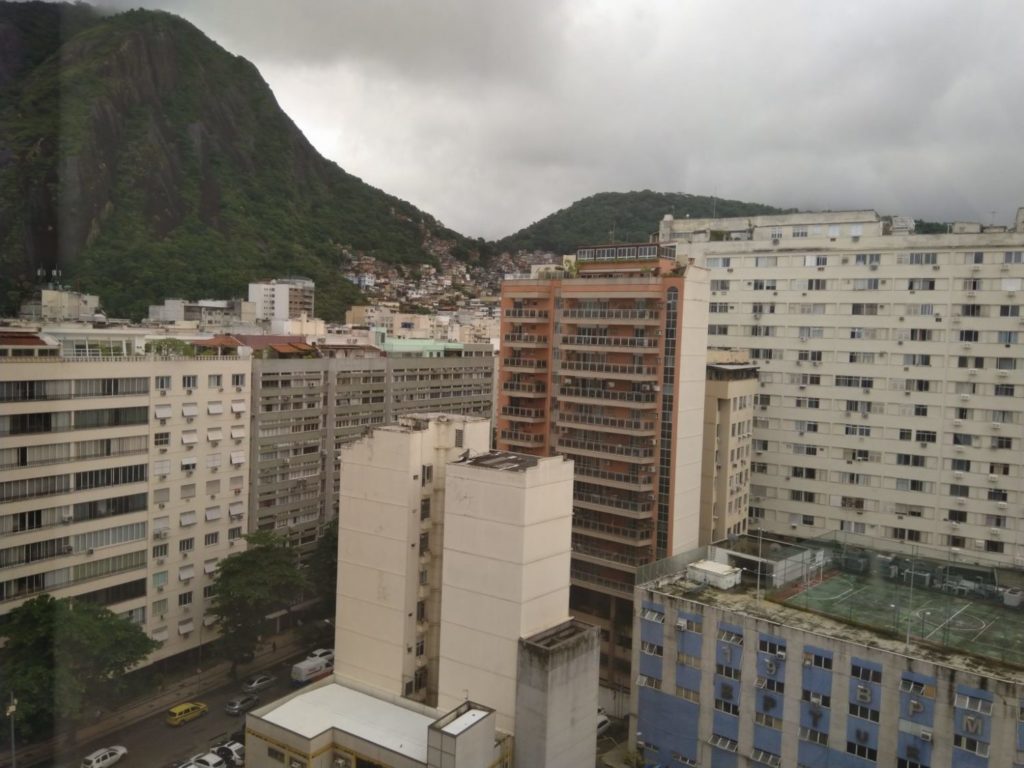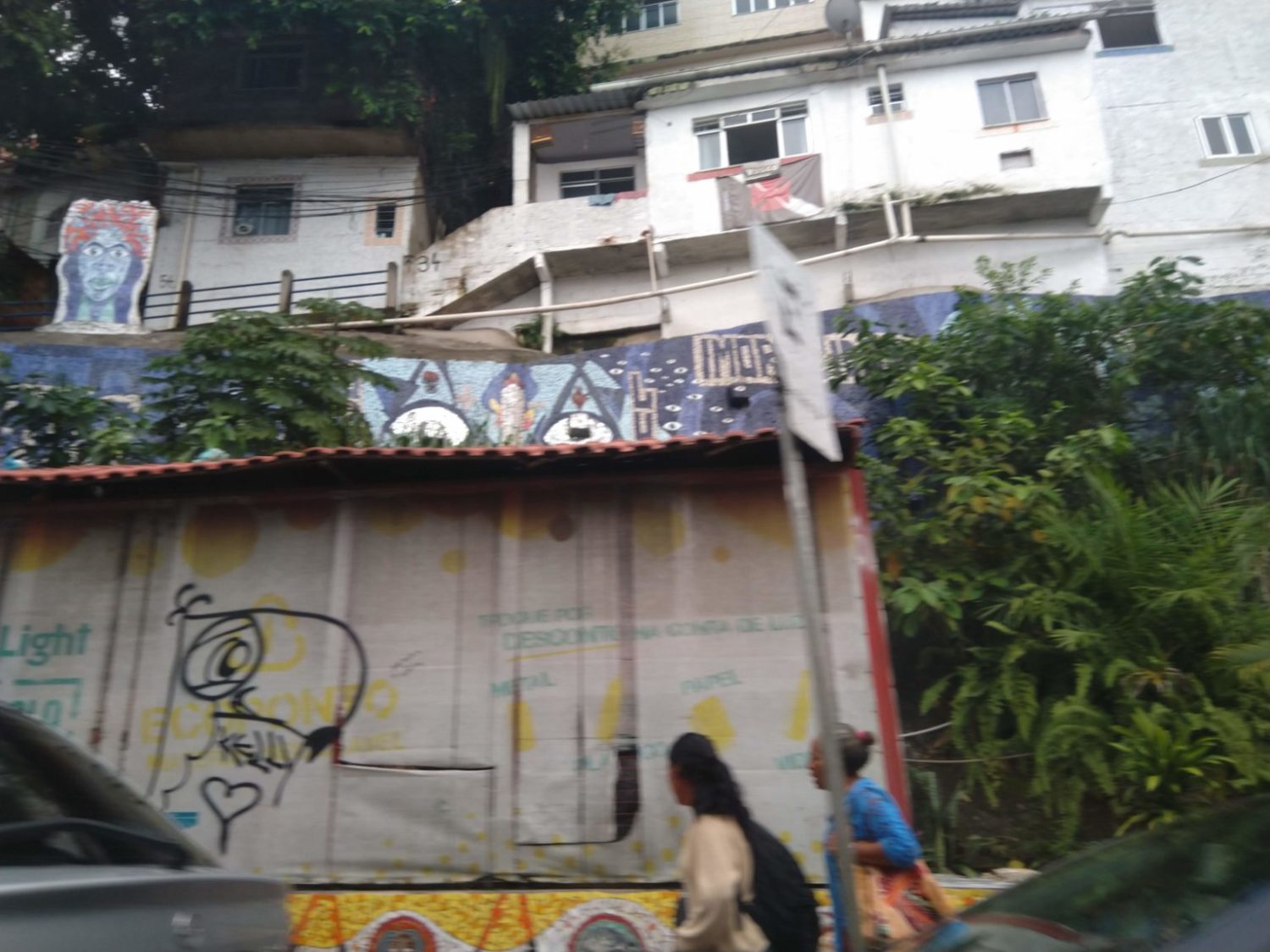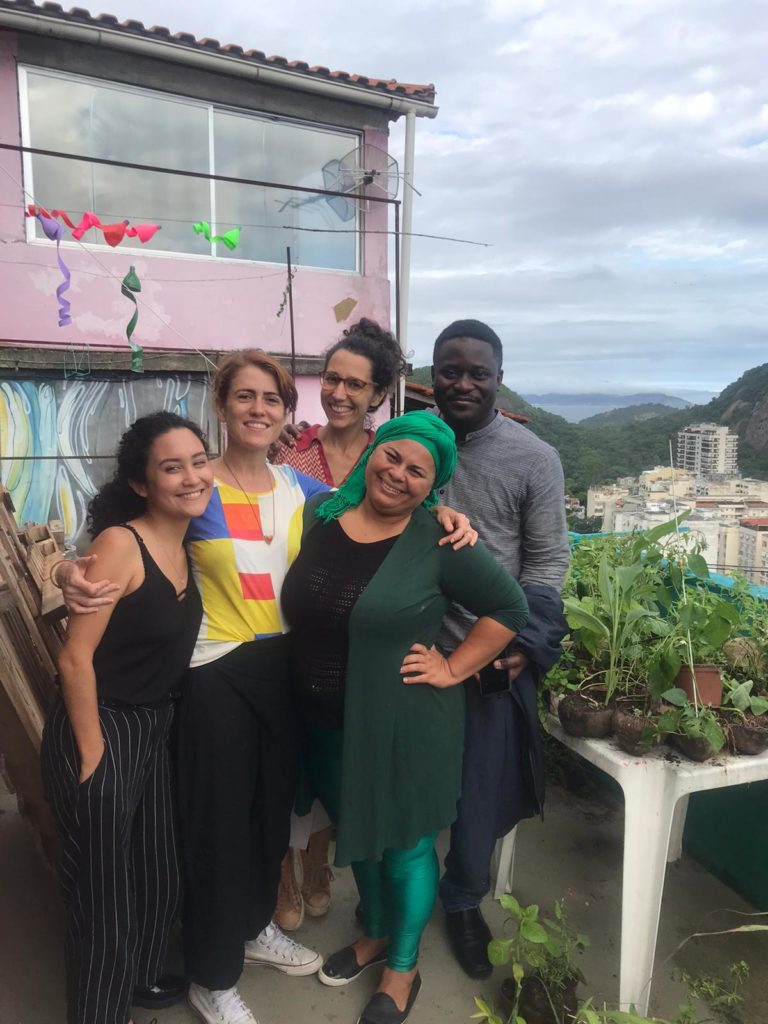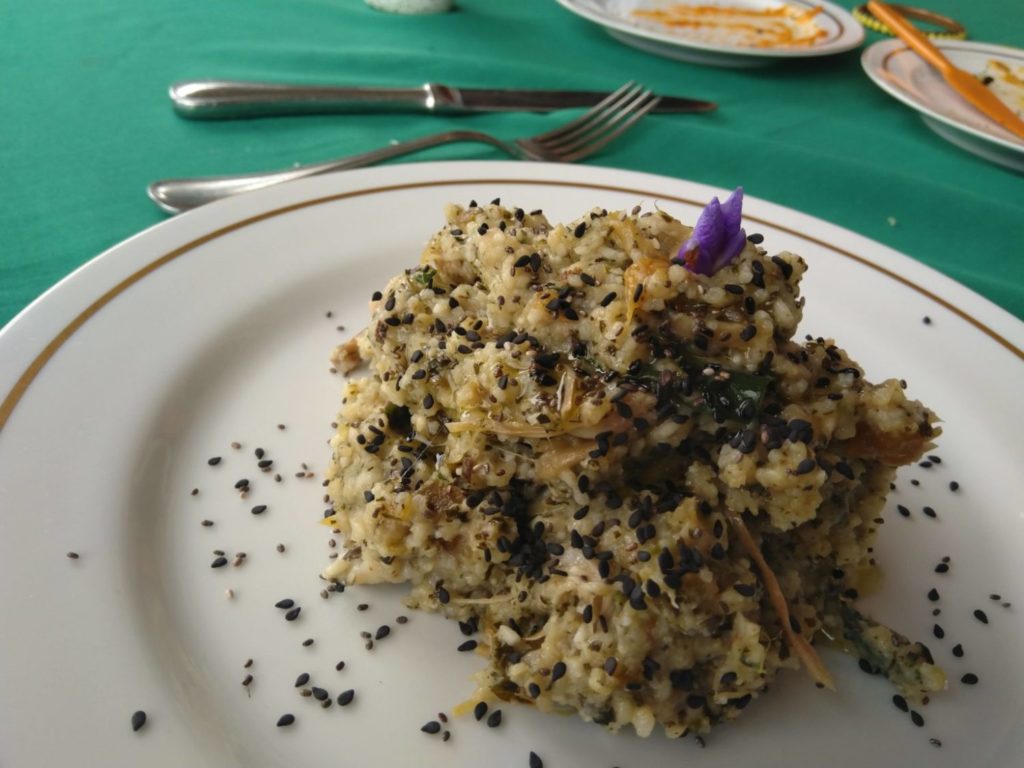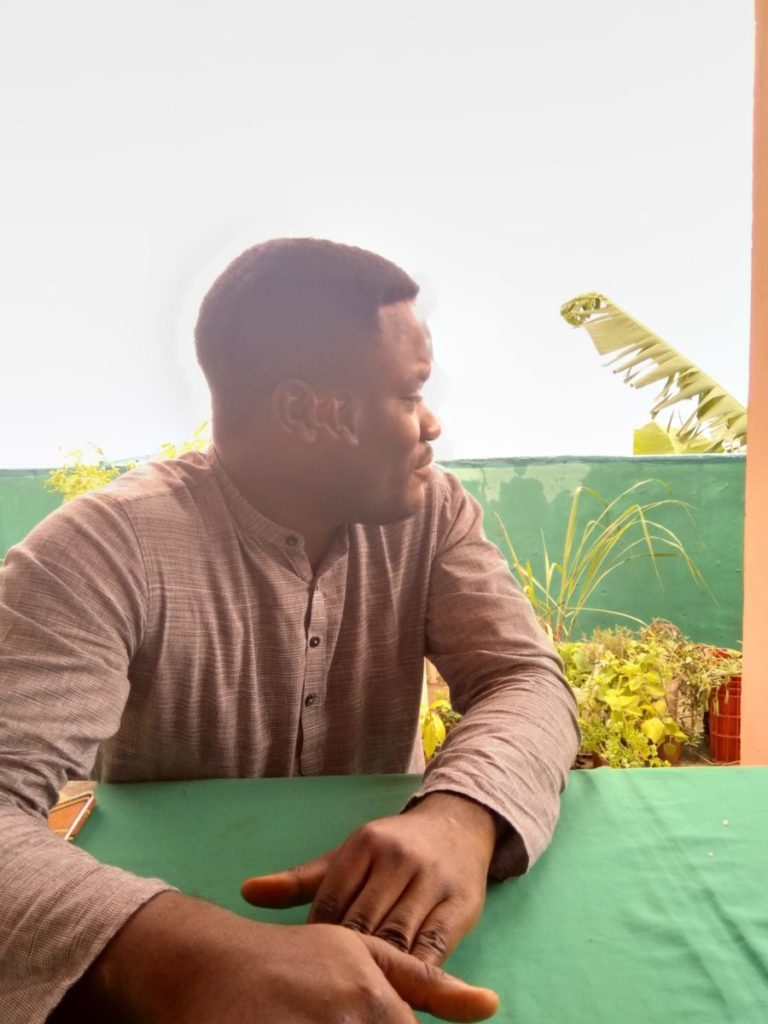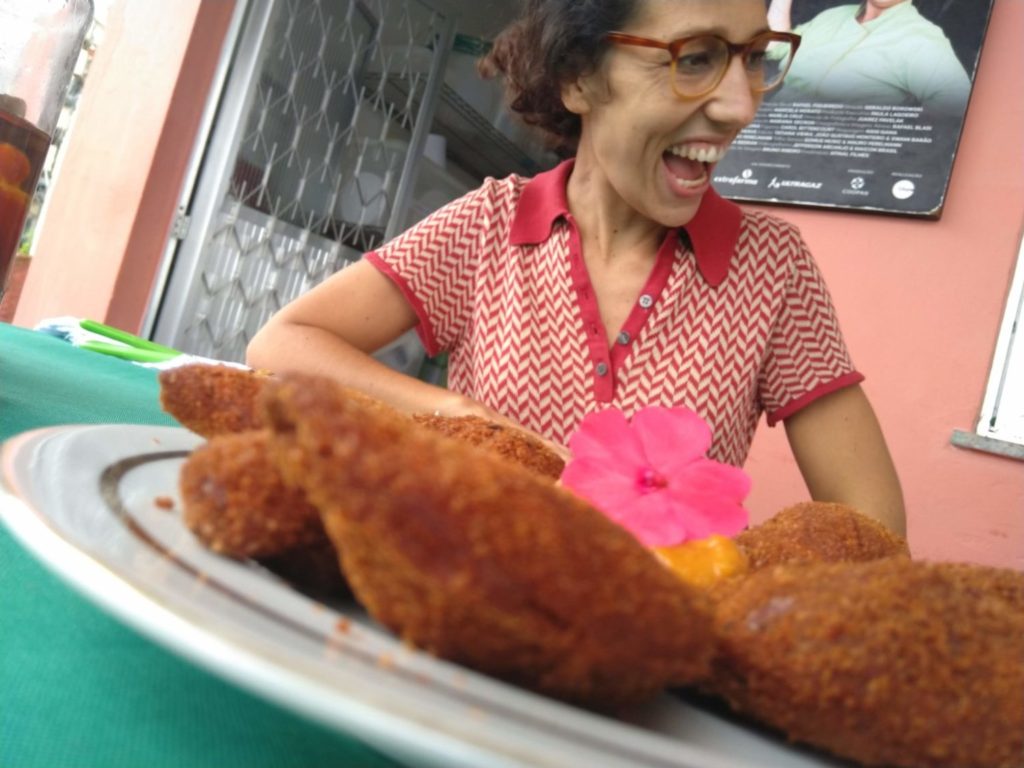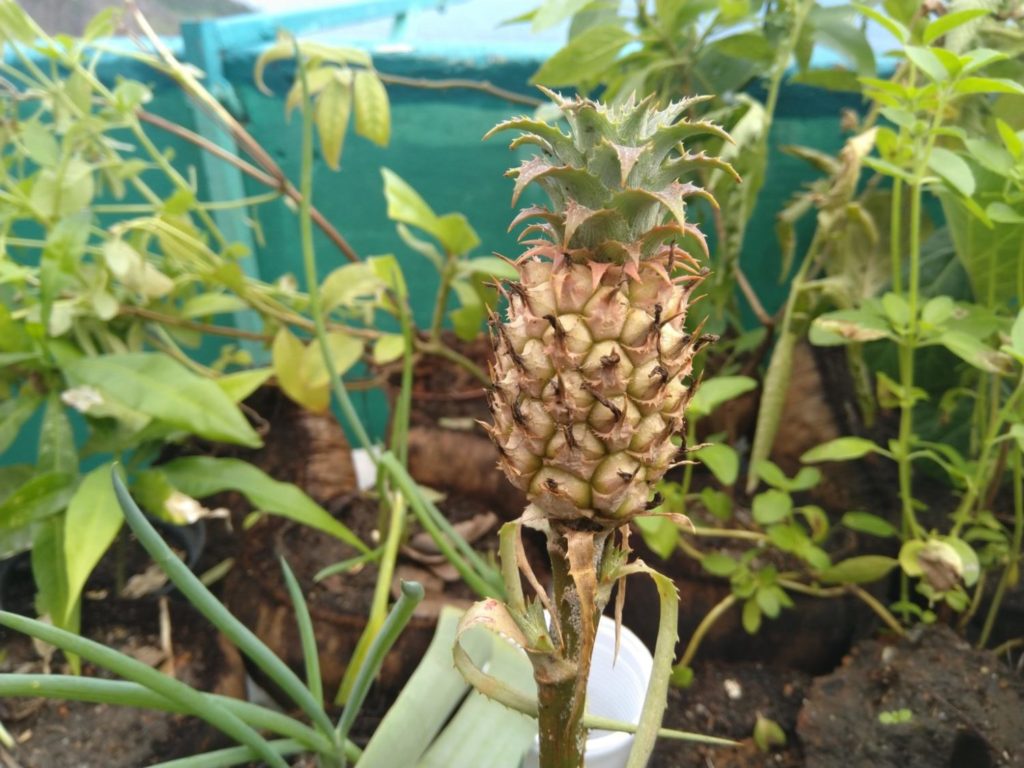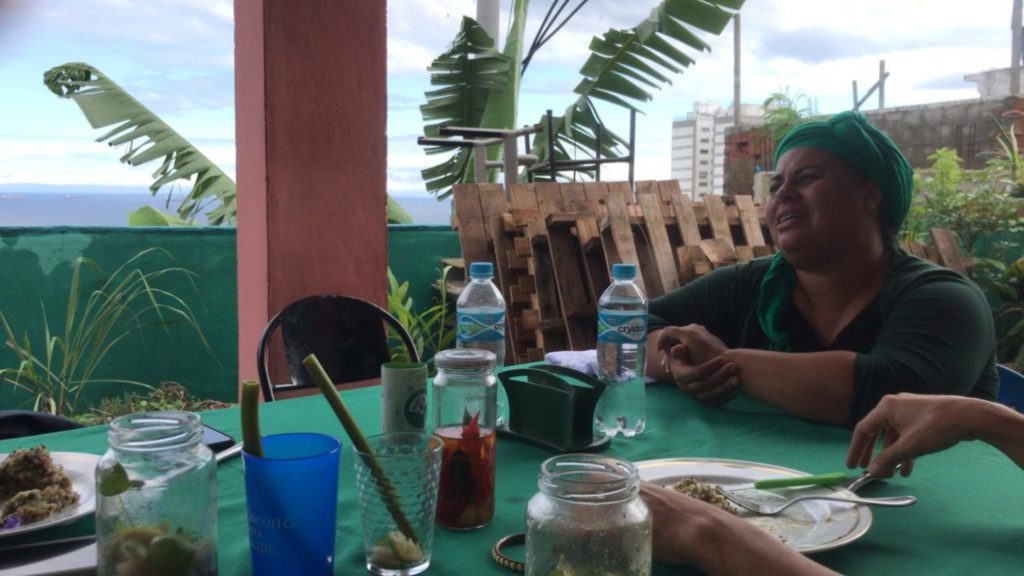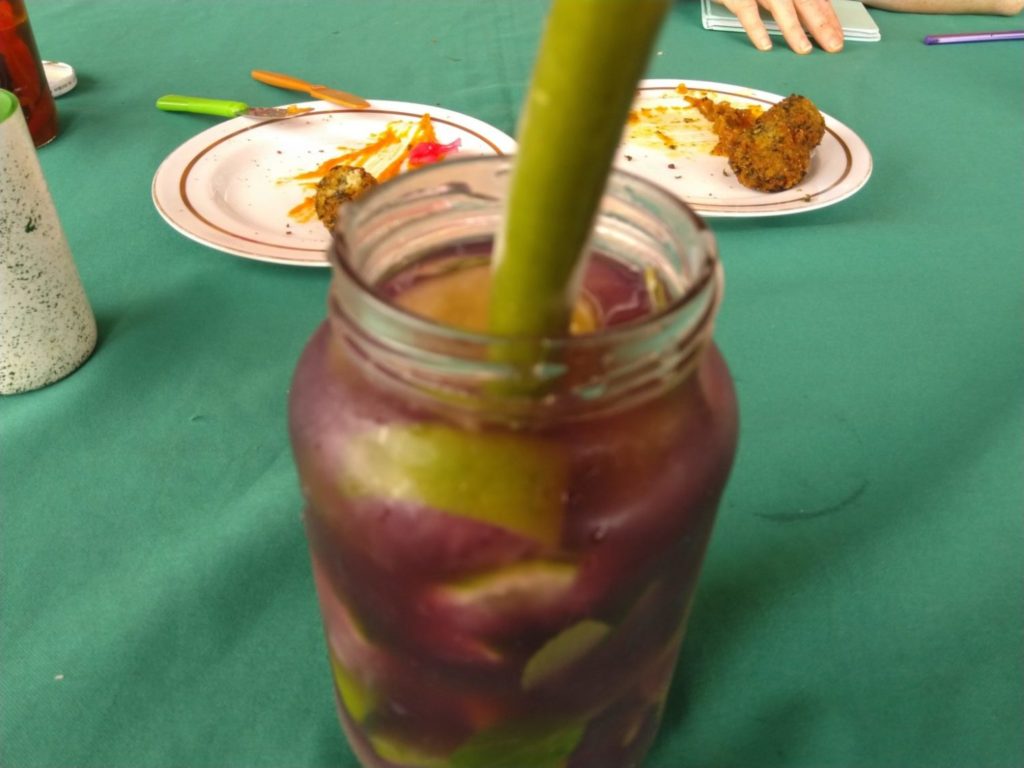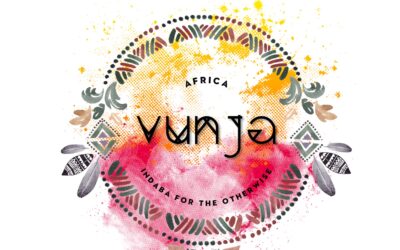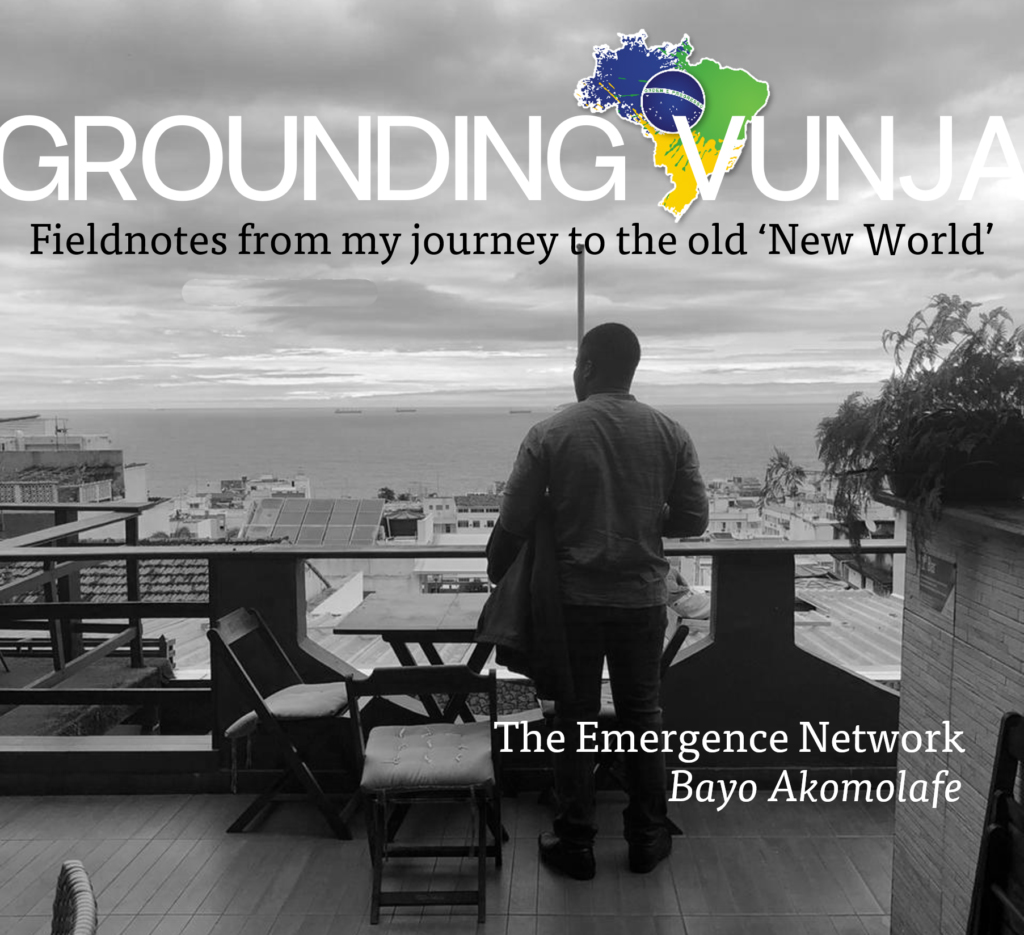

Báyò’s Reflections from Brazil
Grounding Vunja!
GRATITUDE: I want to thank all those who made this trip to Brazil possible and whose work and gifts have inspired me to speak, to explore, to search, to write, to think and to hope a queer kind of hope. This trip to Brazil didn’t begin on the 13th of February when I arrived Rio de Janeiro; it began way before that: somewhere in the vortices of my dear life-partner/wife’s (EJ’s) deeply enabling generosity, leadership and intelligence and the family space we are co-creating with our children, Alethea and Kyah. It began with my other family at The Emergence Network, with Aerin Dunford, Geci Karuri-Sebina (with whom I am privileged to co-curate the Vunja project), Karen Leu, Nuno da Silva, Toni Spencer, Jiordi Rosales, Yeyo Beltran, Giselle Paulino, Suelen Brito, Bhupender Sharma, Manish Jain and all our friends and fellow tricksters in this wide network of queer action, especially those here in Brazil who are contributing to making this dream of postactivism real: Laura Taves, Keyna Ellison, Vanessa Moutinho, Maria Clara Parentes and others too innumerable to mention. My very special appreciation goes to Camilla Cardoso and Carolina Coutinho, perhaps two of the most powerful and wildly effective women I have ever gotten the chance to work with: thank you for the gift of your time, your organization, your brilliance, and your unfathomable generosity. Because of your dedication, we just might shake things up a bit.
Outside my window overlooking the Copacabana, a low-hanging cloud shrouded the Christ the Redeemer statue that stood triumphant over Corcovado mountain. The enshrouded figure doubled as a fitting metaphor for my journey to Brazil and a powerful message: the messianic reveals itself by hiding away in the thickness of clouds. The messianic is the unspeakable, the unsayable, the inexpressible. It is the point where language breaks down and new words are needed.
I arrived Rio de Janeiro this morning, a long journey with its fair share of flight delays, cancellations and re-routings that took me from Chennai through London to Paris and then to Brazil. What brings me here to Brazil? A sense of the messianic. Not the kind that stands in anthropomorphic splendour at the end of history’s linear continuity, not rapture, but the one that breaks open through the ordinariness of the everyday.
Rupture, not rapture. Almost two years ago, The Emergence Network formalized a project we call Vunja. Vunja is one of those duplicitous words with meanings that one cannot be too sure about. I have been told by my dear Kenyan sister and co-curator of the project Geci Karuri-Sebina that in Kiswahili the word could mean “dance” but also “break” or “crack”. One might even think of Vunja as “breakdancing”, the irreverent and athletic form of street dance developed by young African Americans in the 60s and 70s. Like breakdancing, Vunja is an aesthetic of decolonization and emancipation – a way of disturbing the order of things so that still-unknown possibilities may be noticed.
At the heart of Vunja is the electrifying figure of the slave ship, the vessels that carried shackled black bodies westward to the “New World”. The slave ship recently came back in its full terrifying unspeakability when Clotilda, the last known slave schooner from America that brought in just over a hundred Africans from the Kingdom of Dahomey (long after importing slaves was made illegal), was recently found in Mobile, Alabama – hidden in its watery depths and blown open by the prying eyes of history and archaeological technology.
What official historical accounts may however fail to notice is that Clotilda, like many of her seabound peers, may have been left behind, burnt and sunken, she was never abandoned. Clotilda spilled her guts into the economy that made her possible. The African slaves walked right off the despair of the schooner into the misery of the schooner’s world. In other words, disembarkation is a myth. Black bodies (as well as white bodies) never left those slave ships. We mimicked them and built our lives around them. The structure of western societies and the globalizing promise of hope is coterminous with the architecture of the slave ship. The slave ship is a microcosm of a story, one which speaks of the ways we’ve learned to privilege white-identified bodies, to excavate labour and resources from the less-than-human and non-human – and one which whispers about the ways we reinforce our incarceration even with our most desperate quests for justice.
Today, as trouble increases around the globe, as modern liberalism faces its most severe challenges, we are being invited to trust, to hope, to keep fighting, to see ourselves as one large human community of love and faith. As beautiful as these invitations seem, they occlude the legacies of extermination and exclusion which will not be glossed over or erased by newfound invitations to ‘entanglement’. To the promise of inclusivity, of joining a human community, of rising with one hope, one must ask: which human? Whose hope? Whose future are we talking about here? Whose Anthropocene?
The very performance of being human is irreparably bound up with the painful legacies of dispossession, the geological cuts of imperialism that sliced away the homelands of black, brown and white bodies. In other words, the ‘human’ is a territory, not just an item within a geographical space. The human is the earth-shaping cartographical project and metaphysics of discovery that pushed the tips of knives into the nails of indigenous shores, cutting trees, clearing open spaces, conducting genocidal rampages to create a home in the faraway. The human is the layered vortex of forward-facing temporalities, mind over dead matter philosophies, instrumentalized nature, the myth of the hero whose freedom and persistence triumphs over the savages, and entrepreneurial hope. When we speak of hope today, whether it is hope for redemption, hope for a political saviour, hope for a solution that deals a mortal blow to the climatic troubles of our days, we do well to notice that this hope is conditioned by and purchased with painful exclusions. With blood, mangled bones, riven backs and tired tears. This hope is the material vector that pushes through the dark, that explodes a mountain because it is in the way. This hope infects us all, manages our expectations and keeps from view other possible paths for bodily becomings.
Maybe other genres of being human are needed. Maybe the structure of hope, haunted by the prospects of disembarkation, deified in the theology of final rapture, needs to be composted and met by the earthbound logic of historically broken bodies. With Vunja, we say: the hope of rapture, of flight, of progress, of transcendence and superiority has gotten us into a huge mess. Perhaps we must pay attention to ruptures instead.
Breakages. Perhaps we are being invited to consider that escape is defunct, and that to dwell in the margins, in the states of exception and ‘bare life’ (policed and watched by cops, like the Providencia favela here in Brazil) is to occupy other places of power. Vunja is thus a journey to the cracks, a trans-Atlantic revisitation of the hidden secrets of the slave ship, a refusal to adhere to the officialdom of hope-making and a refusal to speak straightforwardly about the future. There, in the heart of the slave ship making its way across the Atlantic with the cunning blessings of Esu the Yoruba trickster god, something other than hope was born. Something we don’t know how to notice. Something beyond our rational calculations and solutioneering heroisms. Something I think is the meaning of Blackness today – not simply a box to be ticked, or an identity category, but a radically hospitable invitation to the cracks, beneath the deck, where the unspeakably messianic turns restless.
This is why I am in Brazil, to learn what Vunja wants to be.
And this is why I sat with Regina Tchelly, a powerful fugitive living in the heart of the favela, shaping new worlds by reconstituting our relationship with food.
Regina’s story is known to many. I had met her before on a previous trip to Rio. She was a highly charismatic, supremely confident figure whose wide smile and fierce hugs magnetized everyone in the room. I remember she had a sense of purpose that was so attractive that to sit next to her felt like being caught in the accretion disk of Black Hole, uncompromising in its dedication to pull near anything in proximity. Regina spoke about food like the sun speaks about shining. Like she invented the thing. And in a sense, she did.
In Brazil, like many other modernizing places across the planet, food is a scarce commodity, a mere product extracted and instrumentalized and productivized for unfeeling consumption. Someone close to Regina that I met at the epicentre of her Favela Organica space in the Babilonia favela, Julia, would later tell me that Brazilians’ relationship to food was part of the troubling changes brought about my rapid globalization. “We have to work fast to counter the effects of Bolsonaro’s regime,” she would say. In my head, I realized that slowing down in times of urgency is not a dismissal of speedy work. The emphasis is on working from a different temporality altogether – a different one that enables different kinds of questions and actions.
Together with my hosts, my dear sisters Camilla Cardoso and Carolina Coutinho (whose efforts to galvanize an assemblage of communities, projects and platforms to help create the Vunja festival in Brazil will forever invite my gratitude), we made our way to Regina in a taxi. Then we came to a place up the steep climb that was impossible for vehicular passage. We got off and climbed up the paved street leading up to Babilonia favela. When we arrived, Regina hugged us like we were her own children. She pounded my back several times and spoke to me in rapid Portuguese. I nodded like I knew what she was saying. Her welcome opened us into a small balcony space overlooking the ocean, garlanded by potted plants and ponderous cats. She apologized for the state of her workspace and informed us that they were renovating, painting the small walls and arranging the chairs so more people could feel welcome. The hard chair I sat on did not do justice to the social upholstery and warmth of Regina’s heart project, the Favela Organica.
Soon I was swimming in the details of what she was trying to do in the world. Regina spoke about “food cycles”, about working with food from start to finish, from peelings to seeds, leaving nothing to waste. Before I could process the rapid Portuguese to English translation that Camilla and Carolina in waltzing turns were offering, my head was being gently shoved towards a big clear plastic bottle with an off-yellow liquid inside it, three-quarters full. Regina asked me to smell the stuff: it was a pleasant lemony smell.
“Soap, soap!” she said. I took another whiff. It was very pleasant to my nostrils. Regina made this cleansing agent from experimenting with lemon peels. She didn’t add any chemical, nothing purchased from the shopping mall or local grocery.
It wasn’t just lemon soap. It was jackfruit risottos, fried watermelon seeds, fried hibiscus petals and other strange things I never would have thought of as “food”. Or “soap, soap”. Regina found it incomprehensible the ways that cities “use” food, as if extracting labour and throwing away the remains. In her analysis, poverty is premised upon this disconnection from plants, from food and its many wisdoms. “Nature is very wise,” she said to me. Her Favela Organica project is a call to a different kind of relationship with the world around us, one that first requires a noticing and then an unlearning of habitual modes of consumption and disposal. I found something deeply fugitive and radically experimental about what she was pulling together. What was most notable is the scope and focus of her project: Regina isn’t trying to fix the world, she is trying to encourage the “non-citizens” of the favelas to approach food differently, to realize that they don’t need the shopping mall, to experiment with recipes they haven’t learned yet, and to see themselves as experts in their own right.
I was just as fascinated with the ways I was quickly adopted into the economy of work that surrounded Regina’s project – truly, the favela’s project. During our conversation, one man had been lifting some wooden crates up the flight of stairs that led to Regina’s. Sweating and exhausted, he spoke to Regina who in turn called us, Camilla, Carolina and me, to help. We promptly left the upholstered convenience of being guests and went right into it, bounding down the favelan stairwell to the asphalt below where a stack of old wooden crates rested on the wall. I was enthusiastic about supporting Regina and imagined I could lift two of those huge crates despite the concern of my hosts and the older man. I eventually did lift two, confident in my arms, but found my enthusiasm not enough fuel to last me all the way up. The older man turned out to be right: why lift two to speedily complete the task and then crash just before the finish line, when you can abandon all ideas of this being a race and take your time with one crate? I was suddenly aware that the favela performed its own temporality. Slowing down was the fastest way to go.
After we talked some more, ate some food, we left Favela Organica – not without Regina’s huge smile and big hugs. She pounded my back with her hands and said my name too many times to count. On the asphalt below, another world stretched into view, the city of Rio, the world that only knew of binary options and could not imagine the hidden, fugitive, postactivist imperatives that were possible and urgent in the favela.
Vunja Project Description
Vunja! [ten artifacts] Imagine other possibilities of being alive! Imagine ruptures and openings in spaces of suffering. Imagine other shapes and genres of being human. Imagine other futures! Vunja means rupture or breakage and also colloquially denotes ‘dance’ in...
The Premise of Vunja!
Vunja! [ten artifacts] Imagine other possibilities of being alive! Imagine ruptures and openings in spaces of suffering. Imagine other shapes and genres of being human. Imagine other futures! Vunja means rupture or breakage and also colloquially denotes ‘dance’ in...
Vunja! Party (2021)
Vunja! [past ten events] Imagine other possibilities of being alive! Imagine ruptures and openings in spaces of suffering. Imagine other shapes and genres of being human. Imagine other futures! Vunja means rupture or breakage and also colloquially denotes ‘dance’ in...
Vunja! Sonic Collage, Musicscapes, AfroRhizomatic Dance (2022)
Vunja! [ten artifacts] Imagine other possibilities of being alive! Imagine ruptures and openings in spaces of suffering. Imagine other shapes and genres of being human. Imagine other futures! Vunja means rupture or breakage and also colloquially denotes ‘dance’ in...
We Will Dance with Mountains: Vunja! Live Session Libations (2023)
Vunja! [ten artifacts] Imagine other possibilities of being alive! Imagine ruptures and openings in spaces of suffering. Imagine other shapes and genres of being human. Imagine other futures! Vunja means rupture or breakage and also colloquially denotes ‘dance’ in...




